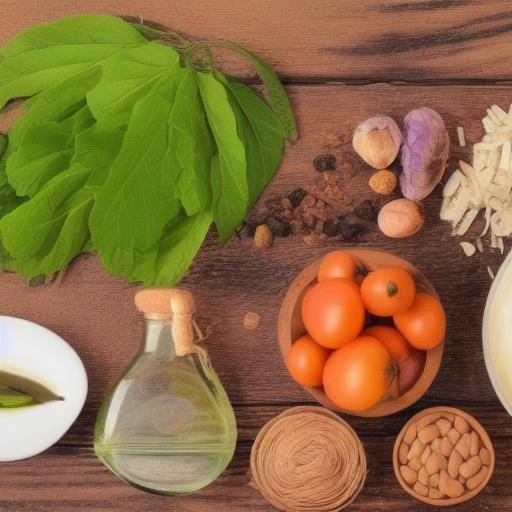
Self-discipline is a powerful tool that can not only impact our labor productivity or fulfill personal goals, but also have a significant impact on our personal relationships. In this article, we will explore how self-discipline, when effectively applied, can improve our interactions and connections with others. We will also examine how self-discipline contributes to emotional well-being and strengthen social connection, providing practical advice and strategies for implementation.
Introduction
Self-discipline involves exercising conscious control over our actions, emotions and behaviors. When applied to personal relationships, self-discipline can improve communication, promote empathy and strengthen trust, essential elements for healthy and lasting relationships.
In this article, we will learn to use self-discipline effectively to improve our personal relationships. We will examine how self-discipline contributes to emotional well-being, which in turn impacts positively on our interactions with others. We will also explore how to strengthen social connection through disciplined practices.
History and background
Self-discipline has long been regarded as a crucial aspect for personal and professional success. In many cultures and philosophies, the importance of self-discipline in the formation of character and the achievement of significant goals has been emphasized.
Origins and evolution
Self-discipline has deep roots in various philosophical, religious and cultural traditions. From the teachings of the Greek philosophers to the meditation practices in Buddhism, self-discipline has been regarded as a means of achieving moral and spiritual excellence.
Significant developments
Throughout history, prominent figures in fields such as psychology, philosophy and personal development have explored and promoted the importance of self-discipline. From the approach of positive psychology to time management strategies, numerous methodologies have been developed to cultivate self-discipline in various areas of life.
In-depth analysis
Self-discipline enriches personal relationships by fostering patience, understanding and active listening capacity. By exercising self-discipline, we can avoid impulsive reactions, manage conflicts constructively and foster an environment of mutual respect.
Self-discipline also contributes to emotional well-being by promoting self-reflection, effective stress management and establishing healthy limits in personal relationships. By learning to self-regulate our emotions and behaviors, we can build stronger and more satisfying relationships.
Self-discipline also strengthens social connection by encouraging us to be consistent with our actions and commitments. By fulfilling our promises, being timely and demonstrating reliability, we build trust and credibility in our interpersonal relationships.
Comprehensive review
Practical applications Self-discipline can be applied in personal relationships through practices such as assertive communication, establishing personal limits and resolving conflicts constructively. By exercising self-discipline in these areas, we strengthen trust and harmony in our relationships.
Best practices Emotional self-regulation, the establishment of shared goals and the expression of gratitude are some of the best practices that can enhance our personal relationships through self-discipline. These practices promote empathy, mutual support and the construction of significant links.
Expert perspectives According to experts in psychology and personal development, self-discipline in personal relationships requires a balance between self-care and commitment to others. By establishing healthy limits and practising self-care, we can be more available to relate in a generic and meaningful way to others, without neglecting our own needs and well-being.
Comparative analysis
Self-discipline and emotional well-being are intrinsically connected, as the ability to regulate our emotions and behaviors directly contributes to our emotional balance. Similarly, social connection is strengthened by self-discipline, as it fosters trust, reliability and commitment in our interactions with others.
Practical advice and recommendations
- Practice active listening: Dedicate time and full attention to your interactions with others, showing genuine interest in their experiences and emotions.
- Establish clear limits: Effectively communicate your needs and expectations, thus promoting healthier and more equitable relationships.
- Cultivate empathy: Try to understand and validate the emotions of others, showing understanding and support in difficult times.
- Compliance with commitments: Demonstrate confidence and reliability by fulfilling your promises and commitments, creating a safe environment in your relationships.
- Promote self-care: Guarantee that you are responding to your own emotional and physical needs so that you can relate in a balanced and full manner to others.
Industry perspectives and expert opinions
According to experts in psychology and human relations, self-discipline is fundamental for the development of healthy and meaningful relationships. The ability to regulate our emotions, demonstrate consistency in our actions and promote an environment of mutual respect are key pillars of self-discipline applied to personal relationships.
Case studies and practical applications
A recent study conducted in working environments showed that self-discipline in interpersonal communication resulted in greater effectiveness in conflict resolution and a significant reduction in labour stress. In addition, cases of interpersonal relationships in family and community settings have shown how self-discipline promotes harmony and emotional well-being in such contexts.
Future trends and predictions
As emotional awareness and interpersonal intelligence become increasingly valued in the personal and professional spheres, self-discipline in the field of relationships is expected to become more relevant. Self-discipline practices, such as conflict mediation, empathy and effective communication, are expected to become key skills in building strong relationships in the future.
Conclusions
In short, self-discipline is a powerful tool that can not only positively impact our personal relationships, but also strengthen our emotional well-being and promote a deeper and meaningful social connection. By applying self-discipline in a conscious and balanced way, we can cultivate more satisfying, empathetic and harmonious relationships in all spheres of our lives.
FAQ (FAQs)
1. How can I practice self-discipline in my personal relationships?
Self-discipline in personal relationships involves cultivating patience, empathy and expression of gratitude in a conscious and constant way. It also involves setting clear limits and maintaining commitments consistently.
2. What is the importance of self-discipline in conflict resolution?
Self-discipline is key in conflict resolution, as it allows us to maintain calm, listen with empathy and seek constructive solutions rather than react impulsively.
3. Why is self-care important in the context of self-discipline and personal relationships?
Self-care is crucial to maintaining a healthy balance in personal relationships. In meeting our own needs, we are in a better position to relate equally and significantly to others.
4. How can I encourage self-discipline in my daily interactions?
To promote self-discipline in your daily interactions, it is important to set realistic goals, practice self-reflection and commit to continuous personal growth.
5. How can self-discipline improve my emotional well-being?
Self-discipline promotes emotional self-regulation, stress management and the establishment of healthy limits, key elements for fostering emotional well-being and mental health.
6. What is the relationship between self-discipline and the construction of long-term meaningful relationships?
Self-discipline allows for coherence, reliability and commitment in relationships, fundamental elements for building and maintaining meaningful and lasting relationships over time.
We hope that this article has provided a clear insight on how self-discipline can strengthen our personal relationships, promoting emotional well-being and enriching our social connection. By implementing disciplined practices in our daily interactions, we can cultivate more satisfying and meaningful relationships in all aspects of our lives.
It recalls that self-discipline is not about perfection, but of personal constancy and growth. By exercising self-discipline in a conscious and compassionate way, we can positively transform our personal relationships and ultimately enrich our life in general.






















































